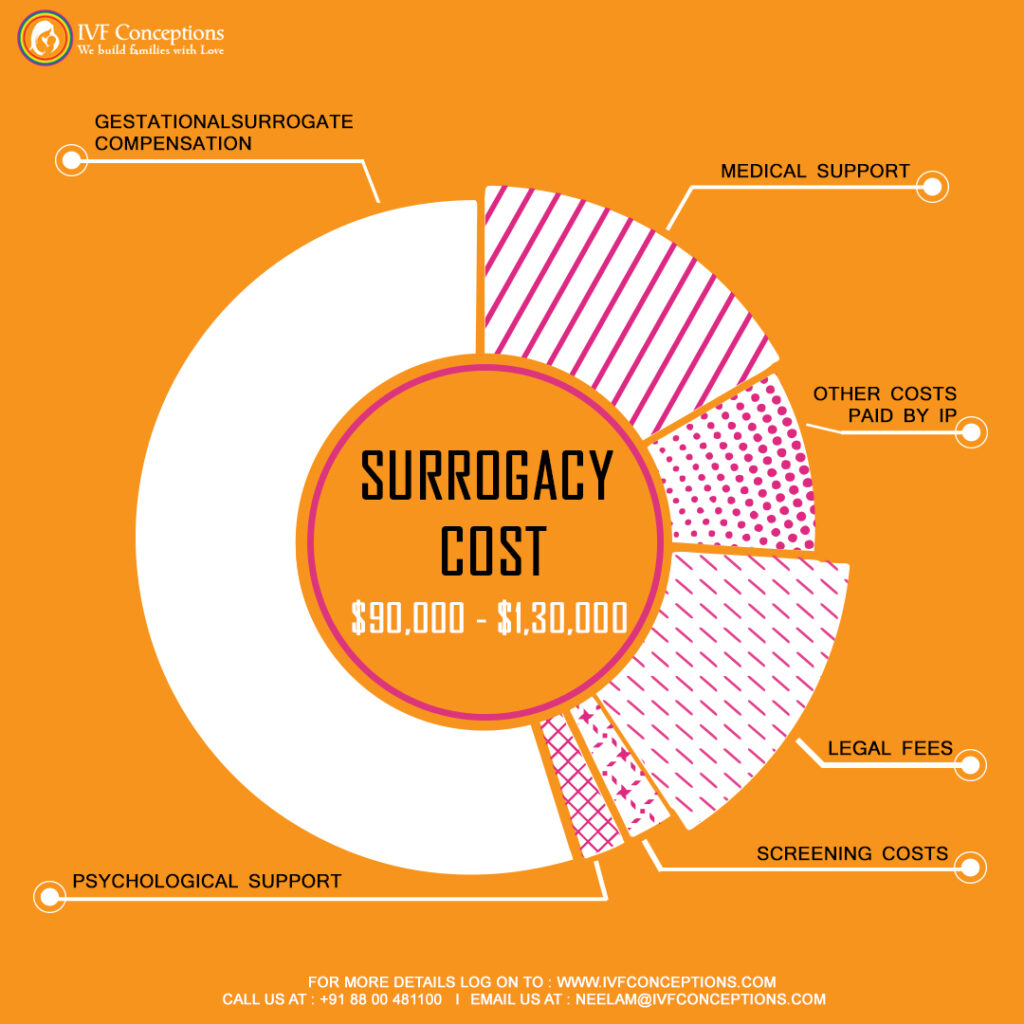Is Surrogacy Legal in the UK? Understand the UK Laws

Is Surrogacy Legal in the UK? Understanding the Laws and Process
Are you wondering about surrogacy’s legality in the United Kingdom? If you’re considering this path to parenthood, it’s crucial to understand the UK surrogacy laws and regulations. The UK allows altruistic surrogacy, meaning surrogates cannot receive payment beyond reasonable expenses. However, commercial surrogacy is prohibited.
- Book an online appointment: Get a free online consultation.
- Call\W:+91-8800481100 Email:neelam@ivfconceptions.com
To ensure a smooth journey, intended parents must apply for a Parental Order after birth to gain full legal rights over the child. The process also involves legal contracts, ethical considerations, and compliance with UK surrogacy regulations. Whether you’re a local resident or an international intended parent exploring surrogacy in the UK, understanding the legal aspects of surrogacy will help you make informed decisions.
The UK is open to surrogacy, but with strict rules to safeguard everyone. The Surrogacy Arrangements Act of 1985 is the law’s main foundation. We’re here to explain the details. This will help you understand UK surrogacy laws better and make smart choices about your family.
More Resources to Read:
Infertility Treatment and Surrogacy Process
9 Factors To Improve IVF Pregnancy Rate
International Surrogacy Options Worldwide
Surrogacy Guide for Surrogate Mothers
Key Takeaways
- Surrogacy is legal in the UK, but the law is complex and not always clear.
- Surrogacy agreements don’t hold up in court at first. The surrogate (and their partner) are seen as the child’s legal parents.
- Intended parents need to request a parental order later. This order transfers legal parenthood to them.
- Payments to surrogates can be made, but the court must check payments above reasonable costs.
- Surrogacy agencies in the UK are mostly non-profit. They connect intended parents with surrogates.
Understanding Surrogacy in the UK

Surrogacy involves one woman carrying a baby for another who can’t conceive or sustain a pregnancy. In the UK, two main kinds are practiced: straight (full or traditional) surrogacy and host (gestational) surrogacy.
Definition of Surrogacy
Surrogacy happens when a woman agrees to carry a baby for others. The woman pregnant is the surrogate, and the future parents are the intended parents. The pregnancy can come from the surrogate’s own egg or the parents’ embryo.
Types of Surrogacy Arrangements
In straight surrogacy, the surrogate’s egg is used. It’s fertilized with the intended father’s sperm or donor sperm. Host surrogacy uses the intended mother’s or donor’s egg and the intended father’s or donor’s sperm in the embryo.
Reasons for Choosing Surrogacy
People pick surrogacy for many reasons. This includes issues like miscarriages, IVF that didn’t work, or health problems that make carrying a baby risky. It’s also for those in the LGBTQ+ community who want a family.
Legal Framework for Surrogacy in the UK
The legal side of surrogacy in the UK is guided by the Surrogacy Arrangements Act of 1985. This law outlines how surrogacy agreements work and how legal parenthood is handed over.
Surrogacy Arrangements Act 1985
The Surrogacy Arrangements Act 1985 is the main law for surrogacy in the UK. It sets rules for surrogacy contracts but notes they are not legally enforceable. As a result, any agreements between surrogates and parents-to-be are not binding.

Legal Parenthood at Birth
At birth, the law sees the surrogate (and her partner, if any) as the child’s legal parents. This is true even if the child is not biologically related to the surrogate, such as in gestational surrogacy cases.
Gay surrogacy in UK is possible but it should not be only altruistic in nature like for hetero couples.
Parental Order Process
After the baby is born, intended parents can seek a parental order. This order changes the child’s legal parents to the intended parents. It ends the surrogate’s legal ties to the child. Also, it results in a new birth certificate for the child.
Cost of surrogacy in UK

In the UK, surrogacy arrangements must be altruistic, meaning that the surrogate cannot be paid a fee for her services beyond reasonable expenses. However, the overall Surrogacy costs can still be significant due to various other expenses involved. The total cost of surrogacy in the UK can range from £20,000 to £60,000 or more, depending on various factors.
Here’s a breakdown of the common cost components for surrogacy in the UK:
- Fertility Clinic Costs:
- IVF Treatment: £5,000 – £10,000 per cycle
- Embryo Transfer: £1,000 – £3,000
- Medication and Hormones: £2,000 – £5,000
- Surrogate’s Expenses:
- Maternity Clothing: £500 – £1,000
- Travel Expenses: £500 – £2,000
- Lost Wages (if applicable): Varies
- Counseling: £500 – £2,000
- Legal Fees:
- Drafting Surrogacy Agreements: £3,000 – £8,000
- Parental Order Application: £2,000 – £5,000
- Surrogate’s Delivery Costs:
- Private Hospital Delivery: £5,000 – £15,000
- NHS (Public) Hospital Delivery: £0 – £2,000
- Other Expenses:
- Counseling for Intended Parents: £500 – £2,000
- Surrogacy Agency Fees (if applicable): £5,000 – £15,000
- Travel and Accommodation: £1,000 – £5,000
It’s important to note that these costs are approximate and can vary significantly based on the specific circumstances, location within the UK, and the Surrogacy professionals involved. Additionally, some expenses may be covered by insurance or other means, while others may be subject to additional fees or taxes.
Intended parents in the UK are advised to work closely with experienced surrogacy professionals, including lawyers and counselors, to ensure compliance with the country’s laws and regulations, and to plan for the associated costs effectively.
Surrogacy Agreements and Payments

In the United Kingdom, surrogacy agreements are not legally binding. This is even when intended parents and the surrogate sign a contract. The agreement depends on everyone’s good will to work out sharing the child and covering costs.
Enforceability of Surrogacy Agreements
Surrogacy agreements don’t hold up in court. But they act as a guide for everyone’s roles and expectations. Because they can’t be forced by law, it takes trust and cooperation for the surrogacy to be a success.
Reasonable Expenses for Surrogates
No law stops paying surrogates in the UK. Yet, the court has to okay any payment beyond reasonable expenses toward a parental order. What counts as reasonable varies case by case. This approach offers fairness in compensating surrogates for their work and any costs they’ve had.
The Process of Surrogacy in the UK
Diving into the world of surrogacy in the UK might feel scary. But, knowing the main steps helps a lot.
- Choosing a Surrogacy Organisation
People thinking about surrogacy in the UK are advised to pick from four main groups. These groups check new members carefully and offer ongoing support during the process.
- Finding a Surrogate and Intended Parents
After matching, intended parents and a surrogate go through a detailed check. This check makes sure the surrogacy is right for everyone. It includes medical, psychological, and legal evaluations.
- Fertility Treatment and Conception
When all legalities are sorted, the surrogate starts fertility treatment. Then, conception happens. The law sees the surrogate as the child’s legal parent, no matter whose egg was used.
- Birth Registration and Legal Parenthood
After the baby is born, the intended parents must get a parental order. This order shifts legal parenthood to them. The court checks if everything is done right before approving this order.
Navigating surrogacy in the UK needs planning, a strong support system, and understanding the law well. Working with trusted groups and following the steps allows intended parents to build their families through surrogacy successfully.
More Resources to Read:
Surrogacy Guide for Surrogate Mothers
Surrogacy Guide for Intended Parents
How does the surrogacy process work
Conclusion
Surrogacy is an approved method in the UK for growing a family. It involves a detailed legal process for both parents and surrogates. Although agreements are not fully binding, a parental order can pass legal rights if the criteria are met.
The UK is open to surrogacy, yet strict rules ensure everyone’s safety.
The Surrogacy Arrangements Act of 1985 laid the groundwork. Notably, the courts oversee payments and the shift of legal rights.
For those unable to bear a child, surrogacy offers hope. It’s important to know the laws and work with trusted agencies. This way, parents can make their family dreams come true.
Our team has over 14 years of experience facilitating surrogacy arrangements, egg donation, and serving as an advocacy resource for infertile couples and LGBTQ individuals seeking to build families. Till now we have helped and supported thousands of the intended parents with their family-building journey, and we can help you as well. Happy to share the references from the past IPs if needed.
If you’d like to learn more about IVF, Egg Donation, or surrogacy services globally, check out the rest of our website at Complete Surrogacy Agency. We offer legally secure and affordable surrogacy consulting services for FREE.
For more resources on IVF and Surrogacy, browse our other web page- IVF Conceptions.
For more resources on IVF and Surrogacy, browse our other web page- Georgia Surrogacy Agency.
Complete Surrogacy: Your Trusted Partner in International Surrogacy
At Complete Surrogacy, we have over 15 years of experience in international surrogacy, guiding 4,000+ intended parents worldwide. We provide safe, ethical, and affordable surrogacy solutions for single parents, LGBTQ+ couples, and heterosexual couples.
As members of EFS and ESHRE, we adhere to the highest ethical and professional standards. Our expert team is committed to providing accurate, compassionate, and transparent guidance, ensuring a legally secure and smooth journey to parenthood.
Let us help you build your family with trust, care, and integrity.
Get in touch for one FREE Surrogacy Consultancy!

FAQ for surrogacy in UK
Is surrogacy legal in the UK?
Yes, surrogacy is legal in the UK, but there’s a detailed legal process set by the Surrogacy Arrangements Act 1985.
What are the main types of surrogacy arrangements in the UK?
The UK recognizes two types of surrogacy. Straight surrogacy involves the surrogate’s own eggs. Host surrogacy uses another woman’s eggs, so the child isn’t genetically related to the surrogate.
Why do people choose surrogacy in the UK?
People choose surrogacy in the UK for different reasons. These include health issues that make carrying a baby risky, previous failed IVF, and wanting a child as an LGBTQ+ couple.
How does the legal framework for surrogacy work in the UK?
The law stipulates that a surrogacy contract cannot be enforced. This means the surrogate is the baby’s legal parent when born. The intended parents must seek a legal court order to become the child’s legal parents.
Are surrogacy agreements legally binding in the UK?
In the UK, surrogacy agreements aren’t legally enforceable. Even with a signed agreement, parties must trust each other to keep their promise.
Can surrogates be paid in the UK?
UK law doesn’t ban paying surrogates, but the court needs to approve payments over reasonable expenses to avoid exploitation. What’s considered reasonable varies, and the court makes this decision separately in each case.
How do intended parents and surrogates find each other in the UK?
Consider using one of the UK’s top surrogacy organizations for safer surrogacy. These organizations screen members and offer support through the process. They can help reduce risks and ensure a smoother journey for both parties.
Source Links
- https://www.gov.uk/legal-rights-when-using-surrogates-and-donors
- https://www.ngalaw.co.uk/knowledge-centre/uk-surrogacy-law/
- https://www.gov.uk/government/publications/having-a-child-through-surrogacy/the-surrogacy-pathway-surrogacy-and-the-legal-process-for-intended-parents-and-surrogates-in-england-and-wales

Author Bio: Neelam Chhagani is an International Surrogacy Expert with 15 years of experience in the fertility and surrogacy domain. As the founder of IVF Conceptions and Complete Surrogacy, she has guided over 4,000 intended parents worldwide on their surrogacy journey to parenthood. Recognized as a trusted authority, she specializes in holistic infertility solutions and third-party reproduction consulting.
Holding an MA in Counselling Psychology and a PGD in Mental Health, Neelam is a proud member of the European Fertility Society (EFS) and the European Society of Human Reproduction and Embryology (ESHRE). She is also a leading surrogacy blogger, providing valuable insights into ethical and practical surrogacy solutions.
Since 2010, committed to supporting ALL family types, Neelam has been passionate about helping intended parents grow their families with compassion, integrity, and a focus on secure and affordable surrogacy options Globally.
Learn more about Neelam:
https://www.ivfconceptions.com/neelam-chhagani-surrogacy-consultant/
https://www.linkedin.com/in/neelam-chhagani-92892229/















I was introduced to Neelam by a friend who worked with Neelam for surrogacy. Neelam is absolutely wonderful. I am a single male and the journey to fatherhood is not that easy. Neelam connected me to a program ideal for my circumstances. She was with me throughout the pregnancy providing advice and guidance along the way. I am so grateful I found her and am thrilled today that I have a beautiful daughter. I highly recommend Neelam to anyone who is on a journey to become a parent. Having a child has changed my world for the better. I wish others success with their own journey and recommend you connect with Neelam to find a path that is best for you.
SA (USA)